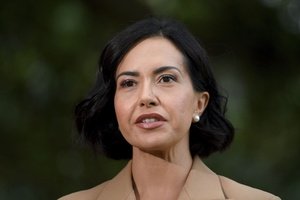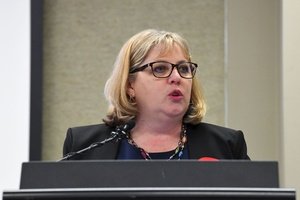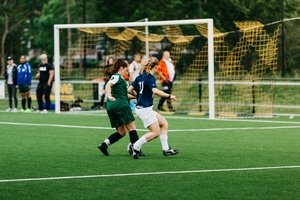Having been in negotiations with the state’s Department of Education since October last year, the SSTUWA (State School Teachers’ Union of WA) said it has not received a satisfactory offer, and so on Tuesday (April 23) they will stop working for a half day.
Teachers have requested a workload reduction in out-of-school hours, and a 7 per cent pay rise in the first year, followed by a 5 per cent increase the following year.
The Government’s response was to offer a 5 per cent increase in the first year, followed by a 3 per cent increase in the following two years.
SSTWA president Matt Jarman said while the pay rise is critical, bringing balance back into teachers’ working lives, is what they’re seeking – and the Government’s offer makes no allowance for that.
He said members felt the pay offer was “a little on the insulting side”.
“Our members are absolutely out of patience,” Jarman said.
“They feel as if they are being overworked and that the school system itself is underfunded, and they are over it.”
Dr Saul Karnovsky from Curtin University’s School of Education told EducationHQ teachers have been pushed to the brink – and it is critical that the WA Government takes their requests seriously.
“We know that teachers, especially here in Western Australia, are saying that it’s not more pay that will keep them in the job, it’s about prioritising their health and wellbeing and their work/life balance,” he said.
“That’s a really critical point in this discussion, that it’s not just about the pay, it’s the conditions, and one of the most important of those is a reduction in class sizes."
Karnovsky says Victoria has a cap of 27 students in Years 4 to 10, whereas Western Australia has the highest class sizes in the country at 32.
“That’s just unreasonable, really,” he said.
“And when we factor in the learner diversities are increasing along every dimension, then this really puts pressure on teachers to meet all the needs of their students, when it starts to tick up to over 30, it becomes very difficult – and this then spills out into their home lives and having to keep up with the requirements and demands and increasing levels (of work)."
Karnovsky says that in Western Australia, the average working week is 53 hours for classroom teachers, and it gets close to 60 for teacher leaders, but it’s more about face to face teaching, which many teachers are finding very difficult to keep up with.
“Victoria had their win around the extra hour a week, which may not sound like a lot to the average Australian, but for a teacher, every minute counts. In the school day an extra hour a week of preparation time is significant.”
Teacher attrition rates are of great concern, and Karnovsky’s own research suggests without better pay and conditions, there could be an upcoming avalanche of teachers walking away from the profession.
“In 2023, in a SSTUWA survey, 86 per cent of teachers intended, or considered, leaving in the previous four years,” he said.
“So I feel that if these conditions aren’t improved and the pay rise that’s being asked for by the union isn’t fully met, this intention to leave figure will move to actual leaving and attrition from the profession.
“Because if you’re already full throttle and you’ve already got one foot out the door, it doesn’t take much of a push to get both feet out the door, and I see this protracted negotiation or a watered down EBA that doesn’t meet the requirements of the union members, to be that push that these teachers need in some ways to walk – and that would be unfortunate and will have large-scale consequences for our schooling system.”
Another big concern in WA is that around one in 15 new teachers in public school classrooms do not have an official qualification.
SSTUWA data suggests about 7 per cent of teachers in front of classes who were hired for the beginning of the new school year, are yet to finish their training or had limited registration.
Karnovsky said, as an example, he’d been supporting a student at the moment who is up in Port Hedland.
“She’s been on a limited authority to teach since the second year of her four-year degree, and she’s finding she’s feeling burnt out already – and she hasn’t even graduated yet.
“So we’ve noticed a really tangible increase in the amount of students who have been offered these positions.”
Despite the SSTUWA saying the strike on Tuesday morning will only be averted if their pay demands are met, WA Premier Roger Cook said parents should still send their children to school on Tuesday.
“We think it is totally unnecessary,” Cook told WA Today in response to the union’s strike action threat.
“In the event that the industrial action does take place the Department of Education has matters in hand – operational arrangements to ensure that we can look after those children.
“If we can’t provide for the duty of care, then obviously we’ll be forced to close those schools, but the understanding I have at this stage is that all schools will be able to look after the children albeit under some adjusted arrangements.”
Jarman said talks were continuing and meetings would be held between the union and government officials all week to try and come to a resolution.
However, he added that he believed many parents were supportive of the move.
“We are trying to minimise the impact on student learning, and we’re also trying to make sure that we fix the public education system,” he told WA Today.
“Parents that were surveyed through our own research know that the public education system needs fixing, and they are on board with us trying to address that.”
If the industrial action goes ahead, the union plans to hold a meeting at Gloucester Park in Perth where Jarman said he expected “thousands” to attend.














